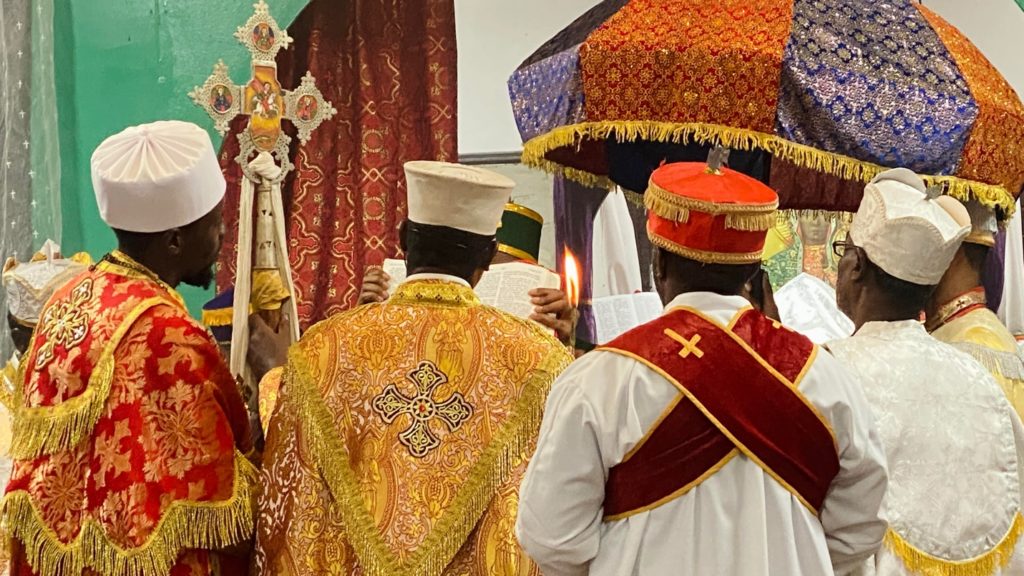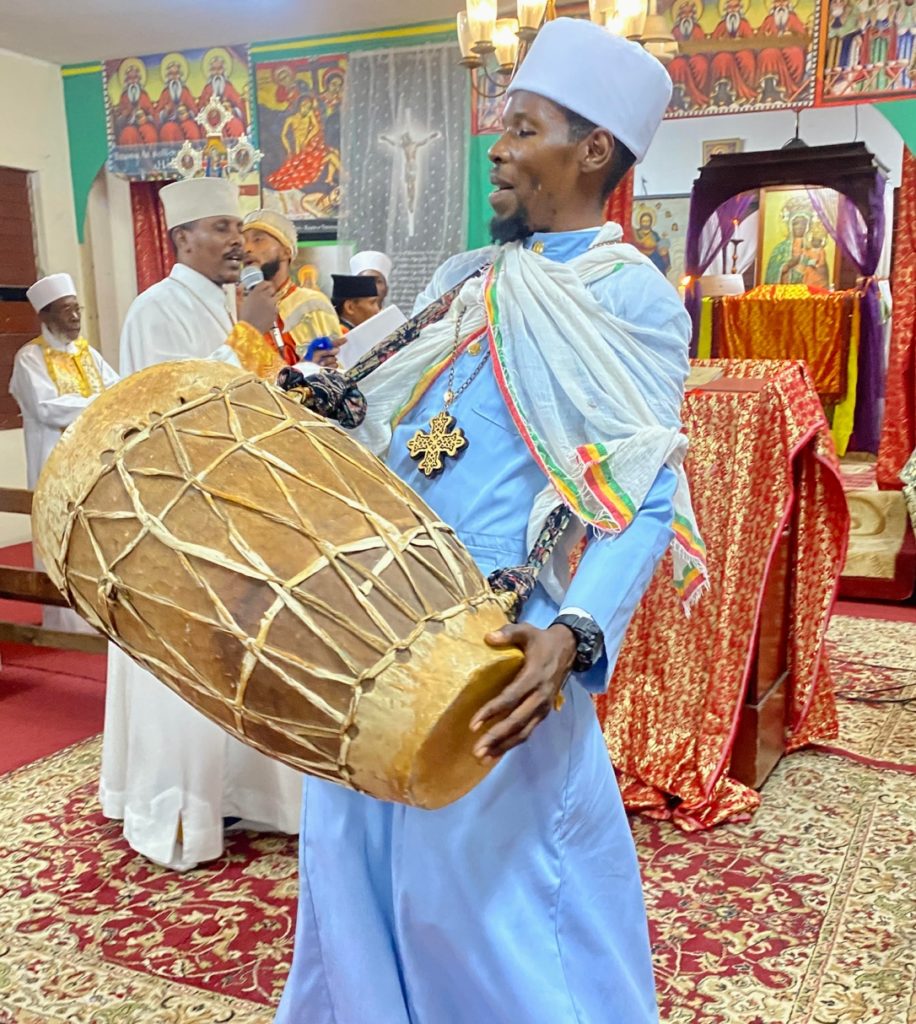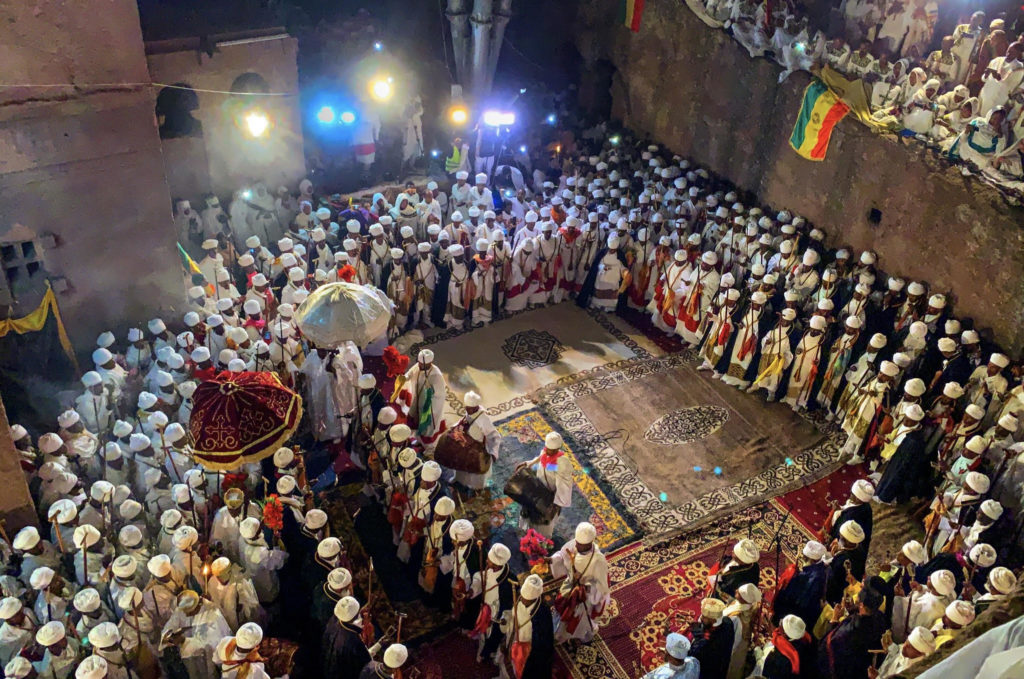

Yodit Hylton/Contributor
On December 25, 2022, Jamaica and most of the world celebrated Christmas, but in Ethiopia, and among Ethiopians in the diaspora, we celebrate Christmas, or Gena (ገና) as it is called in Ethiopia, on January 7. That is because Ethiopia has a different calendar from the rest of the world.
In Kingston, the faithful people of the Ethiopian Orthodox Tewahedo Church (EOTC) gathered at the Holy Trinity EOTC Parish Church to celebrate Ethiopian Christmas, Gena, on Friday (January 6th), its eve.
Ethiopian Orthodox Tewahedo Church (EOTC) in Jamaica Christmas, Gena celebration on Christmas eve

The Ethiopian calendar is greatly intertwined with biblical traditions, history and maintains its ancient calendar. As such, Christmas in Ethiopia is associated more closely with spiritual values, and consists mainly of religious activities as well as festivities with family and friends.

In Ethiopia, Christmas (Gena) is not as commercial as is practiced in some other parts of the world. For example, in Ethiopia Santa Claus is not a part of Christmas celebrations, nor is the big gift exchange culture which exists here in Jamaica and elsewhere.
To explain the time difference, while the western world follows the Gregorian calendar, Ethiopia still uses the ancient calendar, based on the Ethiopian Orthodox Tewahedo Church’s (EOTC) calendar. According to the EOTC, Christ’s birth was seven years later, making this year in Ethiopia 2015.
The Ethiopian and Gregorian calendars both use the birthdate of Jesus Christ as a starting point for their calculations. The difference in the two calendars is explained by the alternate calculations used in determining this date. The EOTC believes that Jesus Christ was born in 7 BC, 5,500 years after God’s promise to Adam and Eve.
The Gregorian calendar was created in 1582 by Pope Gregory XIII, who made some changes to the previously used Julian calendar. Several countries that were under the dominion of the Catholic church had to accept the Gregorian calendar, which is named after the pope, Pope Gregory XIII, who first introduced it. At the time, many countries opposed the new system, which ordered them to drop 11 days from their Julian calendar.
The Julian calendar now runs 13 days behind the Gregorian calendar, so Orthodox Christmas falls on January 7th up to 2099. In 2100, when the world next omits a leap year, it will move to January 8th.
Most significantly, Ethiopia, a country free of any colonial powers and influences of the Roman Catholic church, was not affected by the alterations pertaining to its calendar, and deliberately retained its original calendar, which claims that Jesus was born in 7 BC, and started counting days from that year on. Other calendars held that he was born in AD 1. The difference in the calendar that Ethiopia follows happened from this day forward, which is why the country’s calendar is seven to eight years behind.
The celebration of Ethiopian Christmas comes after 45 days of a fasting period called Tsome Nebiat (fasting of the prophet) during which the clergy and devout Ethiopian Orthodox Tewahedo Church Christians dedicate their body and soul for Gena through fasting and prayer, eating a strict diet without any meat, fish, or dairy products, just vegan food only and people usually eat after 3:00PM in the afternoon.
Gena is celebrated across Ethiopia, but in the Lalibela church in the northern Ethiopian highlands, faithful EOTC members celebrate on a greater scale. The churches of Lalibela consist of 11 churches and are carved out of one rock during the 12th century by Ethiopia’s King Lalibela. The churches in Lalibela are one of Ethiopia’s World Heritage Sites. It’s worth a trip to Lalibela to experience Ethiopian Christmas, Gena, at the annual Christmas celebrations and to see the historic churches.

How do Ethiopians Celebrate Christmas?
Christmas, Gena, celebrations begin with special church services that begin very late on Christmas Eve and last well into the early morning on Christmas day, after which the fast is broken with a big feast with family and friends.
The traditional foods associated with Christmas, Gena, are very important for family gatherings. Families gather to enjoy a feast of ‘Doro Wat,’ a spicy chicken stew, and Injera flat bread. Tej (honey wine) and Defo Dabo, (home-made bread) may also be served. Many people also enjoy eating the meat of the lamb on Christmas day to break the 45 days of vegan style fasting, usually after the Christmas Eve church service. The Ethiopian coffee ceremony is also a part of the Christmas celebration culture, and is served at the end of the gathering.
Also, the Christmas tradition has the outdoor game called Gena which is played by males on Christmas day in the afternoon. The game is similar to hockey and symbolizes the game that the shepherds played on the night Jesus was born.

Orthodox Christians are estimated to number over 300 million people in the world. Orthodox Christians around the world live in Egypt, the Middle East, and Eastern/Southeastern Europe (including Russia and Ukraine). These countries celebrate Christmas on January 7th, similar to Ethiopia.
I wish all Ethiopians and diaspora members a Happy Ethiopian Christmas, መልካም የገና በዓል Melkam Gena!







Comments